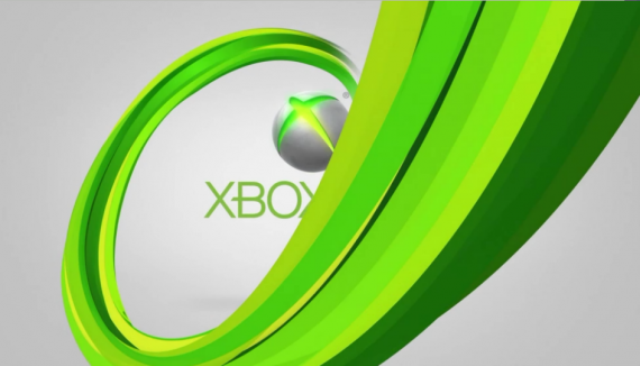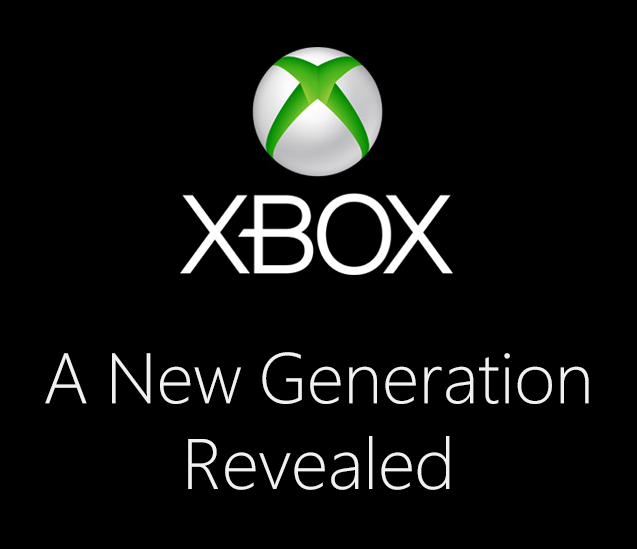 13 years ago
13 years ago
Microsoft officially reveals next Xbox to be announced May 21
Originally, Microsoft’s next-generation Xbox was rumored to be revealed at the end of April, but insiders later leaked it was being pushed back to May 21. However, all of the …
Read More
 13 years ago
13 years ago
Next-generation Xbox rumor roundup
Official word on Microsoft’s next-generation Xbox — believed to be codenamed Durango — is expected to come out during the May 21 Xbox event with more details to follow at the company’s pre-E3 press conference in June. Last month, Pete Isensee, principle program manager at Microsoft Xbox, told UBM Tech that, “In many ways, the next generation is already here in the form of natural user interfaces powered by Kinect.” Naturally, Microsoft wants to keep the focus on the Xbox 360, the Kinect sensor and titles shipping on the system; however, plenty of rumors have been popping up as the reveal grows ever closer.
One of the most controversial rumors is the Durango’s supposed “always on” requirement. Meaning an internet connection is required to boot any application or game. Allegedly trustworthy sources tell Kotaku the “always on” requirement was still planned as recently as March. They also said a network troubleshooter will display if the system loses connection for more than three minutes during a session.
The good news is nothing is official. It could be that “always on” doesn’t affect games at all. With the poor consumer reaction and Sony officially stating the PS4 needs no internet connection in order to be used, it’ll be interesting to see what Microsoft does.
 13 years ago
13 years ago
Microsoft rumored to announce next Xbox at May 21 event
Microsoft’s next-generation console, codenamed Durango, was originally rumored by anonymous sources supposedly close to the situation to be getting a reveal at the end of April. However, …
Read More
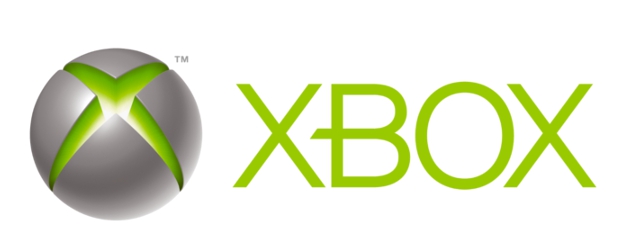 13 years ago
13 years ago
Microsoft holding invite-only ‘Xbox Platform Deep Dive’ session
The next Xbox, despite what public statements made by Microsoft over the last couple of years might lead the uninformed to believe, is coming. We don’t know exactly when, but common sense places its release at some point during the fall of this year. We don’t know exactly when it will be announced, but rumors are pointing to an April event. We don’t know exactly what the machine will be capable of, but an Australian hacker claims to know what’s inside the box.
The Wii U is out. Sony has shown its hand with its PlayStation 4 event last month. Valve spent January telling the world about what the press and public have not-so-cleverly dubbed the Steam Box, which may or may not be competition for the Xbox brand.
Still, Microsoft has issued nothing but denials or no comments each time it has been questioned about a next-generation rumor. But Microsoft is discussing the Xbox — not necessarily the next one — right this very moment.
As this article was being written, the company was busy holding an internal meeting with select partners at its Redmond, Washington headquarters. The invite-only session is titled “Xbox Platform Deep Dive” and is part of a series of meetings that make up the 2014 fiscal year version of a conference Microsoft holds annually.
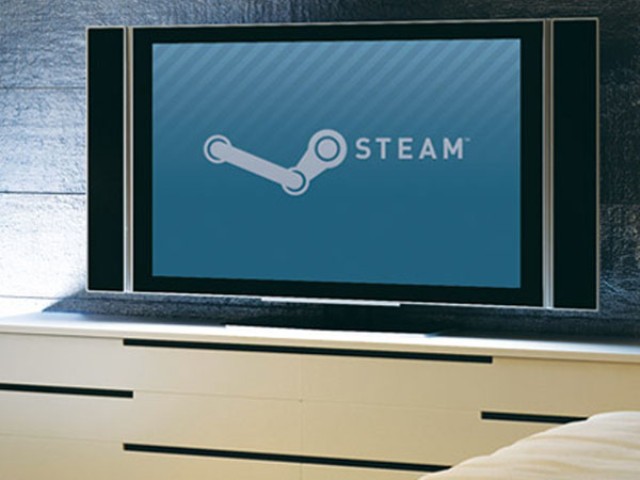 13 years ago
13 years ago
Head of Xbox division doesn’t view Valve ‘Steam Box’ as a console competitor
Seemingly everyone’s favorite PC developer-publisher hybrid, Valve, is planning to ship out prototypes of its so-called “Steam Box” micro gaming PCs within four months’ time. The Steam Box — of which there will be many varieties produced by different manufacturers, including one from Valve itself — aims to transplant the PC gaming experience into a living room near you.
Dedicated game consoles have dominated that space ever since the Nintendo Entertainment System brought the industry back from the precipice of what many prognosticators of the time thought was a no-continue bottomless pit the home console business had fallen into in 1985. Microsoft entered the console business in 2001 and has been anything but shy about its designs on owning the living room. Its next console, believed to be launching this holiday season, is no doubt being discussed by some individuals in Redmond this very moment. In addition to the usual competition from Nintendo and Sony, Microsoft’s next-gen Xbox will have to deal with Valve’s boxes attaching themselves to the back of consumers’ televisions like some sort of hidden bloodsucking leach.
Microsoft isn’t worried.
 13 years ago
13 years ago
Domain registration hints at next-generation Xbox event
Just days after Sony announced the PlayStation 4 at a special event in New York, a new domain registration is pointing to the possibility of a similar reveal from …
Read More
Xbox Durango tipster ‘SuperDaE’ has home raided by Australian police
He’s real all right. He is one man, and he really did gain inside knowledge of Microsoft’s next-gen Xbox, among other once-secretive industry projects. But he’s not a former Microsoft employee or developer who has worked on a game for the platform said to be codenamed Durango. He’s a hacker.
The skilled Australian hacker previously known to the public only as “SuperDaE” has at varying times gained surreptitious computer access to Microsoft, Sony, Epic and Blizzard. What exactly he was privy to once on the inside of any of these industry titans’ systems is still up for some debate, as many of the reported details differ between publisher and hacker. However, there was a time when he was almost certainly in possession of myriad whitepapers containing intricate details about Microsoft and Sony’s respective next-gen console plans.
“Was” is the operative word here. SuperDae, whose real name is Dan “Dylan” Henry and who once attempted to sell what was either an actual Xbox Durango development kit or an uncannily convincing replica of one, has been caught. On the morning of Tuesday, February 19, Australian police — along with an American who Dylan alleges to be an FBI agent — raided Henry’s home and confiscated enough items to fill a 6-page police report. In a tell-almost-all, Kotaku Editor-in-Chief Stephen Totilo recounts in fascinating detail not just the search and seizure of Henry’s belongings, but Totilo’s entire history of dealings with the man who is undoubtedly the most publicly known spiller of next-gen beans.
“I’ve lost everything,” Henry told Kotaku a few days ago. After the seizure of his computers, paperwork, his Blackberry, his Visa, banking records and, strangely, a phallic-shaped cup, the hacker described his life as now being in ruins. Members of Western Australia’s Technology Crime Investigation Unit who took part in the raid reportedly told Henry, who has not been charged with any crime, that he was not allowed a lawyer and taunted him over how he would be treated in prison.
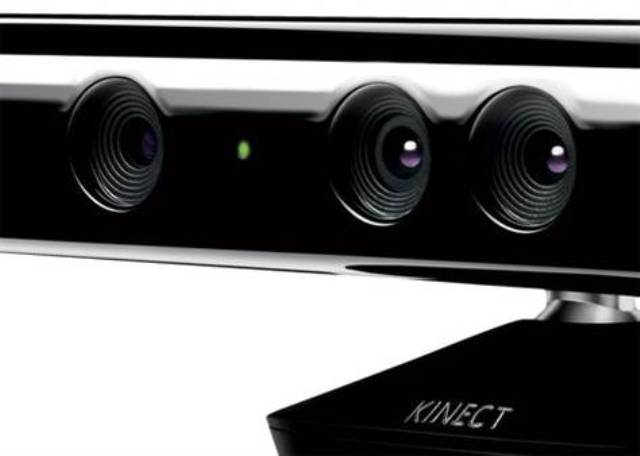 13 years ago
13 years ago
Rumor: Next Xbox to ship with Kinect, new controller and 500GB HDD
Microsoft’s still-unannounced next-generation Xbox console will ship with a new control pad, a 500GB HDD, a “much-improved” Kinect motion sensor and the ability to run multiple games/apps simultaneously, according to a Kotaku source who claims to be in possession of a development kit for the machine said to be codenamed Durango. According to Kotaku’s article, all Durango SKUs will not only ship with a Kinect sensor, but they will also only function when one is connected.
This latest next-gen scuttlebutt follows in the still-crashing wake churned up by another round of rumors that XBLAFans reported on just last week. The sources behind those rumors also asserted that the so-called Xbox 720 would bring with it a new and improved version of Microsoft’s motion-sensing technology.
Regular next-gen rumor followers will be familiar with Kotaku’s latest rumor source, who goes by the handle “SuperDaE.” He, as Kotaku identifies him, caught gamers’ attention last summer when he attempted to sell what he said was an Xbox Durango dev kit on eBay. Interestingly, SuperDaE said the sale was intercepted by Microsoft and prevented from going through on account of copyright issues. Microsoft has not acknowledged as much and is unlikely to considering that it has so far done everything short of wave its collective hand in front of a Kinect sensor like some sort of Jedi Knight and confidently state that there is no next-gen Xbox whenever the subject has been broached.
SuperDaE’s information, which was supposedly gleaned from a score of Microsoft whitepapers, points to the next-gen Kinect sensor being capable of tracking up to six gamers simultaneously (up from two in the current version) and 25 of each player’s skeletal joints (up from 20). Color and depth resolution and depth range are said to be getting dramatic increases, and “Active IR resolution” is reportedly being added to Kinect’s specs. The whitepapers say Kinect will always be watching users and that it will automatically detect players and associate them with their Xbox Live accounts.
 13 years ago
13 years ago
Next Xbox: Better with Kinect…Blu-ray, persistent online and game activation codes?
Late last week Microsoft’s most direct competitor in the home console space, Sony, announced a February 20 event that will presumably be the coming-out party for its next-gen PlayStation 4 console, the existence of which has still not been officially confirmed by Sony. Microsoft has joined its cross-Pacific rival these last few years in being equally tight-lipped when it comes to the next Xbox being something instead of nothing, the latter of which essentially being what Redmond would have gamers believe.
It’s total malarkey, of course, as Microsoft has undoubtedly been working on the successor to the Xbox 360 for years and has reportedly been kicking around the idea of holding its own special event to show and/or tell the world what’s in the (next) box.
Unfortunately for curious Xbox fans, proving a shred of any of that continues to be a hurdle that is cleared with all the ease and grace of releasing DLC for a two-and-a-half-year-old licensed XBLA game from a major publisher.
Instead we’re left with rumors, more of which popped up today on Edge. “Sources with first-hand experience of Microsoft’s next generation console” reportedly leaned in close to the Great Ear of the Internet and whispered some things that Microsoft’s PR department may or may not have wanted them to whisper. Trench coats with suspiciously popped novelty-sized collars were presumably donned by all parties involved.
Today’s gossip pertains to several rumors, all of which have been floated out at least once before by other media outlets, but Edge’s source speaking about them again only serves to lend further credence to them being grounded in reality. Word is that the next Xbox console will utilize 50GB Blu-ray game discs, require users to always be online, and, unsurprisingly, have new and improved versions of Kinect and Xbox Live. Perhaps most interesting is the assertion by said source that the Xbox Durango, as the machine has been rumored to be internally codenamed, will employ a system designed to eliminate the possibility of retail next-gen Xbox games being resold by consumers. As mentioned, Durango would require a constant internet connection “in order to function.”
 14 years ago
14 years ago
Microsoft says recent ‘new Xbox’ quote was misunderstood
The news that a Microsoft employee had publicly referenced the existence of a “new Xbox” spread rapidly across video game media outlets and blogs this past Monday. Microsoft Windows Live General Manager Brian Hall’s perceived reference to a next-gen home gaming platform to succeed the Xbox 360, released in November 2005, in the same breath as talk about Windows 8 would have marked the first time anyone working for the console holder acknowledged its existence. However, the publisher has since spoken with IGN about what most believed was an accidental slip of the tongue by Hall and said his words had been misunderstood by the media.
“The comments to The Verge were not understood in their intended context,” reads the statement Microsoft issued. “When Brian [Hall] mentioned a ‘new wave of products,’ he was referring to the full lineup of products coming later this year from Microsoft, including Windows 8, Office, Windows Phone and of course our fall Xbox update which will bring a host of new consumer experiences like Xbox Music, Videos, Games on Windows 8 and Xbox SmartGlass.”
That’s it then, right? Case closed. There is no new Xbox. Never was, never will be. Except for that there is. Proving as much isn’t really possible, but, in addition to the fact that there must be one simply because creating new consoles every several years is just what’s done in this industry, there are a number of reasons to believe the follow-up to the 360 is a thing. Epic has released sizzle footage of its next middleware engine, Unreal 4, in action. Ubisoft and LucasArts showed off games this past E3 that are all but confirmed to be coming to the PS4 and Xbox 720 (Watch Dogs and Star Wars 1313, respectively). A little while back, Kotaku‘s Stepen Totilo even went ahead and said, “people are making video games for the next PlayStation and the next Xbox.”

